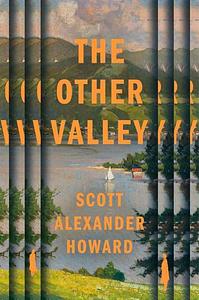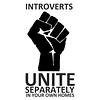Take a photo of a barcode or cover
reflective
tense
medium-paced
Plot or Character Driven:
A mix
Strong character development:
Yes
Loveable characters:
No
Diverse cast of characters:
Complicated
Flaws of characters a main focus:
Yes
I was so mad thinking the ending wasn’t going to happen lol. I enjoyed the book the middle got a little stagnant but i liked the concept and most of the delivery. our main characters resilience and drive for wanting to change her life was well written because for a while i truly thought she was going to get a terrible ending but she pushed through. it just shows that we are constantly changing through life. also the writing style of not having chapters or quotations was very fun
challenging
dark
reflective
slow-paced
Plot or Character Driven:
A mix
Strong character development:
Complicated
Loveable characters:
No
Diverse cast of characters:
Complicated
Flaws of characters a main focus:
Complicated
adventurous
dark
emotional
mysterious
reflective
tense
medium-paced
Plot or Character Driven:
A mix
I was really excited to read this but it was just okay wished the multiverse had given MORE
adventurous
dark
hopeful
reflective
fast-paced
Plot or Character Driven:
A mix
Strong character development:
Yes
Loveable characters:
Yes
Diverse cast of characters:
No
Flaws of characters a main focus:
Yes
Thought provoking. Well written. Learned some new words.
challenging
dark
emotional
mysterious
reflective
sad
tense
medium-paced
Plot or Character Driven:
A mix
Strong character development:
Yes
Loveable characters:
Yes
Diverse cast of characters:
No
Flaws of characters a main focus:
Yes
emotional
mysterious
reflective
emotional
mysterious
reflective
slow-paced
Plot or Character Driven:
Character
Strong character development:
Complicated
Loveable characters:
No
Diverse cast of characters:
No
Flaws of characters a main focus:
Yes
Bookclub: A town is isolated by mountains, on the other side of those mountains, the same town, twenty years later or earlier. The MC sees the visit of the parents of her friend, so she suspects her friend will die soon. What will she do?
The first part of the book was amazing, tense, intriguing and reflective. The pacing was good, the plot was fantastic. But the second part felt bleak, depressive and there is a narrative shift, a change of theme that I did not quite enjoy. It felt that the author decided the MC to be miserable and pitiful.
The format of the book was also weird, without any quoting for conversation that I did not enjoy. The prose is good, but the second part does not hold the level of the first one.
The first part of the book was amazing, tense, intriguing and reflective. The pacing was good, the plot was fantastic. But the second part felt bleak, depressive and there is a narrative shift, a change of theme that I did not quite enjoy. It felt that the author decided the MC to be miserable and pitiful.
The format of the book was also weird, without any quoting for conversation that I did not enjoy. The prose is good, but the second part does not hold the level of the first one.
slow-paced
If you’ve looked at my reviews for a bit, y’all should know by now that I’m incapable of writing a short negative review, so this is going to be a bit of a rant. Fair warning.
This book was incredibly boring to me. Like barely anything happened the entire time. The first part was a coming of age stuff. Oh, a shy, socially awkward teenage girl comes of age? Yeah, been there, done that. It’s not particularly fun to experience, and it’s even more boring to read about second hand. Like, do people like this just for the #sadgirl vibes? I really don’t see the appeal. And then the second part of the book switches from that to not-quite-middle-aged ennui, which is also really boring. This part of the book is a smidgeon more eventful, but it’s equally dull, imo. I would call it misery porn but it’s not that extreme or graphic. It’s just depressing in a drab, uninteresting way, imo.
This book was incredibly boring to me. Like barely anything happened the entire time. The first part was a coming of age stuff. Oh, a shy, socially awkward teenage girl comes of age? Yeah, been there, done that. It’s not particularly fun to experience, and it’s even more boring to read about second hand. Like, do people like this just for the #sadgirl vibes? I really don’t see the appeal. And then the second part of the book switches from that to not-quite-middle-aged ennui, which is also really boring. This part of the book is a smidgeon more eventful, but it’s equally dull, imo. I would call it misery porn but it’s not that extreme or graphic. It’s just depressing in a drab, uninteresting way, imo.
So you might be wondering, if there’s not a lot going on plot-wise, maybe it’s because it’s more of a character study. In that case, why on earth would you write a character study on such a boring character? Not only is Odile's life not particularly interesting, neither is her perspective. She's very emotionally distant/detached, so if it’s a character study, we don’t really get into her head or see her unique perspective. All I got from her for the entire book was a vague sense of unhappiness, with the only variety being the degree to which she’s unhappy. She’s extremely passive as a character. She doesn’t really want anything, she’s just buffeted around by what others want. She barely has a personality (and the audiobook narrator’s monotone voice did not help with this). And like, I get it, in real life I would be more sympathetic to her, but this is a fiction book, and I expect a bit more from a fictional main character than I do a real person
The setting was a generic French/possibly French Canadian village. Which is once again, was pretty bland. There were a few dystopian or sexist elements thrown in for flavor, I think, but even those read as vague and generic. I read speculative fiction to get away from these sorts of thing, to read about interesting people living interesting lives in interesting places. And The Other Valley failed on that account three times, which is honestly pretty impressive, I would have to think pretty hard to remember the last spec fic book I read that did so poorly on this metric.
Ok, so maybe the plot and the character was boring, but maybe it’s good because the premise is so interesting, right? Well, I just read Ficciones by Jorge Luis Borges, I learned that a really great philosophical idea makes for an awesome short story. Writing a book takes a bit more work than just an interesting thought experiment (which is why Borges sometimes uses his cheat code of writing a short story reviewing a fictional book). This book was also too distracted from actually thinking through all the implications by Odile’s boring life, which is why these sorts of thought experiments tend to work better on smaller scales.
But also, it just wasn’t a good take on time travel? Like, it doesn’t less sense the harder you look at it. My favorite example of this is that we have two dedicated organizations whose goal is to prevent travel from one valley to the next from disrupting the timeline, because that will destroy the version of the village in the future timeline, which they consider bad. Ok, so why does Odile’s ability to get into one group and her ability to get a promotion in the other dependent on her being affected by travel between the valleys? Both groups apparently have it in their policy that they’re ok with destroying future versions of themselves from the valley where the traveller was from by promoting/apprenticing someone, which means that the current version of them will possibly be destroyed by past versions of themselves if the policy is the same. Like, shouldn’t that be against their mission statements of making sure travel doesn’t actually interfere or cause change? I mean that’s bound to cause butterfly effects, right? It certainly would massively change Odile's life, destroying her future version, at the very least. Like this book barely has a plot and there’s already some massive problem with the most important plot points.
And on top of that sometimes it like interference was causing actually causing the present in a deterministic sort of way (Odile’s mother’s insistence that she would get into the Conseil, Odile’s coworker seeing the successful version of himself and that gets him to try to be a superior officer, Edme's parent's visiting ), sometimes it destroyed the present in an indeterministic way (the ending ). Like dude, pick a lane. If your book is about the philosophical implications of time travel, and it's inconsistent that’s kind of a problem.
And on top of that sometimes it like interference was causing actually causing the present in a deterministic sort of way (
I’ve read a lot of other literary speculative fiction books at this point. It’s not like I’m incapable of appreciating the genre crossover or stuff like that, which I know can be an issue for some people. This book ended up boring me on the literary front as well, it didn’t really end up being experimental or taking risks, which is the interesting part of literary fiction, imo! (And no, refusing to use quotation marks does not count as being experimental). I’m going to be annoyed for a while about how this is the literary spec fiction 2024 debut novel about an isolated town that actually caught on/has gotten some popularity and not Ours by Phillip B. Williams. I mean, I can understand why (Ours is a lot in multiple ways, it doesn’t really have that mainstream resonance), but I’m still going to be salty about it, because I think Ours was just so much better (better prose, better character writing, more emotional, etc). But if you really want to keep the time travel aspects, & This is How to Stay Alive by Shingai Njeri Kagunda is my favorite for its emotional power and how it addresses grief. But probably the most similar in terms of it being a lit fic/sci fi book dealing with themes of middle aged ennui and childhood nostalgia as well as the philosophical implications of time travel is How to Live Safely in a Science Fictional Universe by Charles Yu. This book annoyed me a lot too, but it was way better than The Other Valley. Like, it took risks, was actually pretty philosophically rigorous, and was more or less entirely internally consistent. I didn’t like How to Live Safely in a Science Fictional Universe, but at least I could respect it.
Graphic: Child death, Death, Misogyny, Grief, Sexual harassment
Moderate: Domestic abuse, Gun violence, Sexual assault, Suicidal thoughts, Death of parent, Alcohol
Minor: Terminal illness, Dementia




